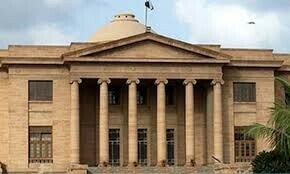KARACHI: Activists, academics, non-governmental organisation (NGO) workers and civil society organisations expressed their concern on Thursday morning over the government’s recent notification which ordered 21 international NGOs to shut down their operations in the country.
Speaking at a consultation organised by the Pakistan Institute of Labour, Education and Research (Piler) and the Pakistan Civil Society Forum, they said banning the INGOs was a violation of international conventions and fundamental rights.
Titled ‘Intimidations to civil society in Pakistan and the way forward to tackle the issue’, the event was held at the Piler centre in Gulshan-i-Maymar.
‘If we are not careful, this place will turn into a police state’
They claimed that the government’s decision would have a negative impact on an already under-developed country which needed international support to improve basic necessities such as health and education.
According to Piler’s executive director Karamat Ali, it was now or never. “If we do not stand up against this, it might be too late ... we might turn around later and realise that the little rights we have no longer exist,” he said, adding that if things continued the way they were, Pakistan might soon become a police state.
“Freedom of association and expression are fundamentally important rights and if we compromise on these, we will enter the era of slavery again. We have to tell the bureaucracy that they are the public servants — not our rulers,” said the Piler executive director.
According to Mr Ali, banning INGOs was a serious matter as it violated the fundamental right of association. He said that they would challenge the high court’s decision in the Supreme Court.
A speaker at the event suggested that instead of approaching the courts, it would be wise to go to lawmakers first and look at the law. While another suggested, that since this was just a notification, it was not a law, just government policy and could be challenged easily.
Pakistan Fisherfolk Forum’s Jamil Junejo gave a presentation in which he highlighted the INGO regulation. He claimed that a policy for regulation of INGOs was notified in 2013 under which it is essential that all NGOs and INGOs must be cleared by Economic Affairs Division and sign a memorandum of understanding (MoU) with it for three years. In case an organisation violates a section of the MoU, the entire registration of the NGO is cancelled, not mere cancellation of MoU.
At the end of the consultation it was decided that the activists and NGOs would “express solidarity with the INGOs” and passed a resolution in this regard. They also resolved to challenge the government’s policy for regularisation of INGOs and local NGOs in court.
Published in Dawn, December 29th, 2017















































Dear visitor, the comments section is undergoing an overhaul and will return soon.